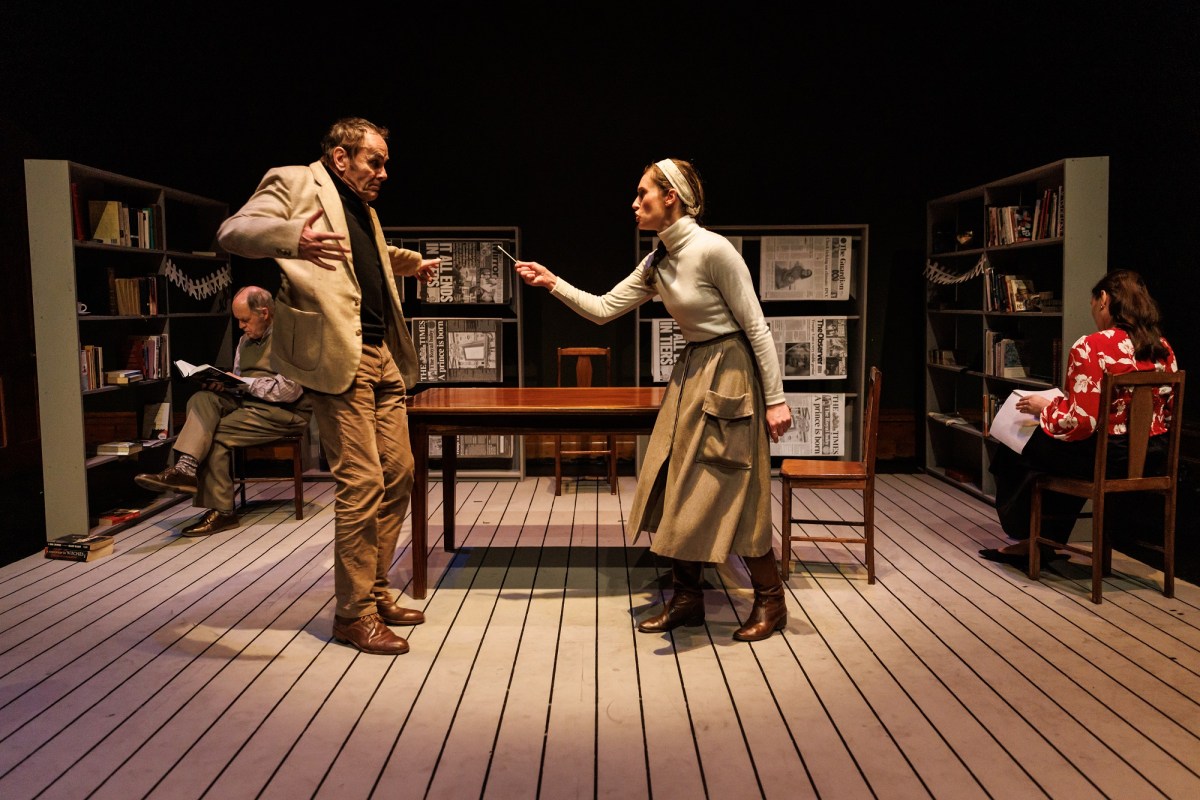On 25 August, ArtsHub published a review by reviewer Vanessa Francesca of the La Mama production Birthday Book of Storms.
As per our Code of Conduct, the play’s writer and co-director, Rosemary Johns, has requested a right of reply. Her response is published below in full.
***
As a long time practitioner of theatre, as a playwright with six plays published by Currency Press, and as an advocate for women’s voices in theatre, I really felt I had to address the claims of Vanessa Francesca, reviewer of Birthday Book of Storms.
Your reviewer claims:
‘The …problem with the magical realist narrative is: does the author have a right to the device of magical realism? This reviewer says not at this cultural moment. Magical realism has been used by victims of dictatorships in Chile and Argentina, and by third generation Holocaust survivors, to convey the limits of representation to share pain.’
Magic realism is a genre that spans time and diverse cultures, certainly popularised by great South American writers such as Gabriel Garcia Marquez, but it is not a genre solely held by this culture. Writers across the USA, Japan, Africa, England and India have employed the genre, writers including Salman Rushdie, Ben Okri, Zakes Mda, Toni Morrison and John Fowles. (The term was created by a German photographer and art critic, Franz Roh, in the 1920s.) As recently as 2021 the National Theatre in London produced a magic realist play The Ocean at the End of the Lane, adapted by Joel Horwood from the best-selling novel by British writer Neil Gaiman.
I would remind the reviewer that Sylvia Plath herself used references to the Holocaust, not as a survivor but as a poet. Assia Wevill in the play has a monologue about her family’s escape from the Nazis, and having to flee Berlin, as her father was Jewish.
Even if I were to accept such ideologically-driven insistence that magic realism has been appropriated by me, I would like to note your reviewer failed to mention the co-director of this piece is Jaime G Dörner. Born in Chile, he grew up in Chile and trained in theatre at a major university in Chile. He wanted to direct the work precisely because he loved its magic realist quality. I rest my argument. A Spanish speaking South American with a doctorate in theatre and very much a part of South American culture didn’t appear to have the incredibly personal view of your reviewer that I had appropriated his culture.
Next the reviewer claims:
‘And when an author takes another subject’s memories, they need permission to enter, not the hollow declaration that their work is a fictional one.’
I am interested as to who the reviewer wanted me to ask for permission? The participants are all dead. The entire point seems to have been missed: the history of Assia and Shura and their roles in Ted [Hughes]’s life had been much erased in his lifetime, until more of his papers were sold to Emory after his death.
The Estate has long contested the views of biographers, poets and writers on the subject of Ted’s relationships and often has sought to impose creative control.
I did write, in the early stages of conceiving a play, to Carol Hughes, Ted’s wife. I received a reply, pointing out that although a play sounded interesting, Ted did not believe his life should be dramatised. This then led me to decide upon a fictional telling, rather than an attempt at a biographical one, and to find an imaginative way to explore the silenced voices of Assia and Shura. But according to your reviewer this is a silence I should have upheld.
Your reviewer did not sit in a library at Emory University and have the surprise and revelation of finding a lock of hair, perfectly preserved in a small plastic bag, in Ted Hughes’ papers. Not catalogued, I am not even sure the librarians at Emory know it is there. Deep brown, perfectly preserved, that lock of hair sent an electric shock through me. As a writer, and artist, there are times when one moves beyond protocols, to ‘dream the dream onward’ as Jung would say. This is what active imagination is about, what artists do. The question is too, what belongs to a family and what belongs to mythology?
I spent many hours with the ground-breaking child health psychiatrist Dr Harry Edhouse, now deceased, discussing Shura. As he pointed out to me, if as a writer I was to imagine the child’s psychic space, it is not like the lived experience we have as adults, but rather a supreme sensitivity to the dynamics of parents’ conflicted relationships. These conflicted relationships form the framework of the play. Here again magic realism is used, as in some literature, as a device to recall repressed memories and traumatic events, bringing to the foreground those who have been marginalised in the dominant narrative. The play’s narrative transitions between the real and the fantastical, hence the thread of the selkie woman entwined in the text.
‘Plath-as-thwarted-domestic-drudge,’ your reviewer trumpeted. However, look at the photo used to encapsulate the production: is that woman a drudge? The photo looks like a fight between two artists to me.
I understand the conflicted passions of the poets arouse ongoing divisive comments by critics and fans, and a reviewer has a right to critical opinion. However, there is a great deal of misinformation and ideologically driven criticism in this review, which also need to be addressed.





